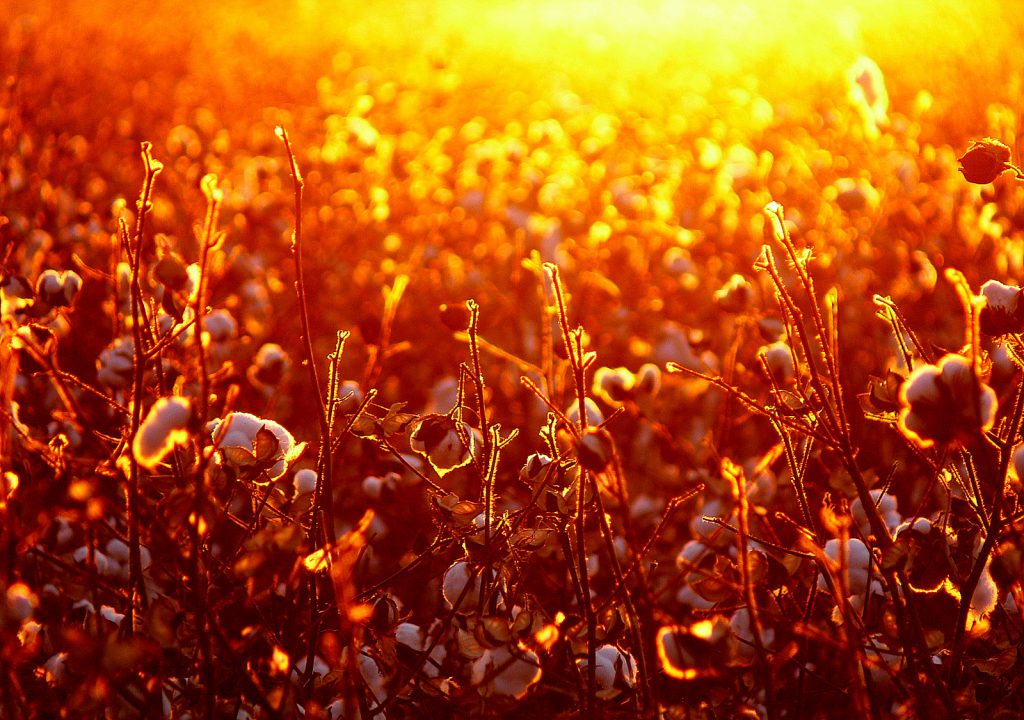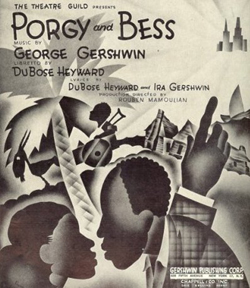

“Summertime” is a song you’ve probably heard before, whether by your favorite jazz, rock, or ska singer, or possibly in the background of a movie you love.
This song is iconic, and anyone could probably find a version of it that they love. In this book, I’ll explore the history of this legendary song and a few of the most popular (read: my favorite) renderings.
The song Summertime was originally written by George Gershwin, arguably one of the most famous composers in American musical history.
In 1926, Gershwin read the book Porgy by DuBose Heyward and was enthralled by the story, and in 1933 the two (along with Gershwin’s brother Ira) began writing an opera based on the book.
Bringing American blues, jazz, and soul into opera was a somewhat radical idea, and Gershwin went a step further and proposed that the first production of the cast be entirely black.
The opera was initially unpopular, but got it’s deserved appreciation later in 1975, and is now one of the best-known operas.

The most popular song of the opera by far was Summertime. In fact, Gershwin used it four times in the opera itself.
Abbie Mitchell Cook sang the role of “Clara” in the opera. She was the daughter of an African-American mother and a Jewish-German father.
Hers is the first known recording of the song Summertime, featuring Gershwin himself on the piano.

Summertime
And the livin’ is easy
Fish are jumpin’
And the cotton is high
Oh, your daddy’s rich
And your ma is good lookin’
So hush, little baby
Don’t you cry
One of these mornings
You’re going to rise up singing
Then you’ll spread your wings
And you’ll take the sky
But ’til that morning
There’s a’nothing can harm you
With daddy and mammy standing by
One of these mornings
You’re going to rise up singing
Then you’ll spread your wings
And you’ll take the sky
But ’til that morning
There’s a’nothing can harm you
With daddy and mammy standing by
Those simple yet powerful lyrics were written by DuBose Heyward himself. While normally a novelist, Heyward wrote most of the lyrics in Porgy and Bess, yet is relatively unrecognized for his work.
Heyward said about the lyrics:
“That “and” is worth a great deal of attention. I would write “Summertime when” but that “and” sets up a tone, a whole poetic tone, not to mention a whole kind of diction that is going to be used in the play; an informal, uneducated diction and a stream of consciousness, as in many of the songs like “My Man’s Gone Now”. It’s the exact right word, and that word is worth its weight in gold. “Summertime when the livin’ is easy” is a boring line compared to “Summertime and”. The choices of “ands” [and] “buts” become almost traumatic as you are writing a lyric – or should, anyway – because each one weighs so much.”
On the right: George Gershwin, DuBose Heyward, and Ira Gershwin in NYC, 1935

As for the music, the melody is similar to an African American spiritual, “Sometimes I feel Like a Motherless Child”, and may very well have been “inspired” by it. A lot of controversy surrounds the idea of this black opera created by and benefiting white artists, and the idea is still being disputed over.
There is no doubt, however, about the captivating feeling of the music. It might give you the feeling of a lazy and warm summer day, of a satisfaction, or maybe the feeling of longing and yearning.
Musicologist K.J. McElrath wrote:
“Gershwin was remarkably successful in his intent to have this sound like a folk song. This is reinforced by his extensive use of the pentatonic scale (C–D–E–G–A) in the context of the A minor tonality and a slow-moving harmonic progression that suggests a “blues”. Because of these factors, this tune has been a favorite of jazz performers for decades and can be done in a variety of tempos and styles.”
In 1936, a year after the opera’s premiere, a young Billie Holiday recorded her version of “Summertime”, the first cover of the song to hit the US pop charts at number 12.
However, it was Ella Fitzgerald and Louis Armstrongs 1957 version of the song that gave it international recognition and cemented it as the jazz classic it’s known as today.
They released it as part of an album of selections from Porgy and Bess, which was later awarded the Grammy Hall of Fame Award and is considered “the most musically successful amongst the jazz vocal versions of the opera”.
From then on, a domino effect of covers and recordings was set off with this particular song.
Its simplicity and elegance allowed jazz musicians to improvise it as they pleased, and other performers to morph it into completely new genres.
In 1958, Miles Davis released his own Porgy and Bess album. His version of Summertime is considered a historic jazz masterpiece.
Today, there are around 100,000 recordings of Summertime, and Guinness World Records gave it the prize of “Most recorded song” in 2017.
A website called The Summertime Connection has made it their mission to collect as many possible recordings of the song as they can. As of Dec. 1, 2020, they claim to know of at least 99,714 public performances, of which 84, 068 have been recorded.
Janis Joplin recorded her own iconic version in the late 60’s – here is a live version of her performing in 1969. The song is a classic fit for her rough voice and improvisational style.
Nina Simone released a version in 1959, along with some other hits from Porgy and Bess.
Even British rock bands of the 60’s picked up the craze. Here is the popular version of The Zombies live, with the added soundtrack of crazed fans in the background:
In 1973, BB Seaton released a reggae version of the song.
The song is commonly sampled as well. In 1997, Ska/reggae punk band Sublime sampled the song in their hit “Doin’ Time”:
And one final banger, a decidedly fun version of the song by Billy Stewart in 1966:
I hope you enjoyed this book and that you find your favorite version of Summertime!
Published: Dec 15, 2020
Latest Revision: May 30, 2021
Ourboox Unique Identifier: OB-965952
Copyright © 2020








